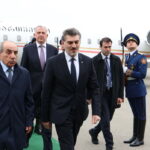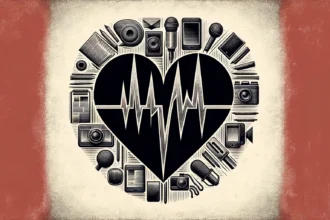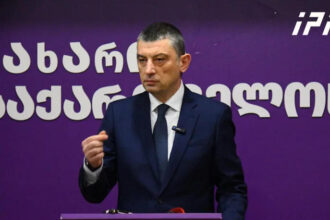**EU Must Set an Example for Media Freedom to Influence Autocrats**
The European Union (EU) is facing a challenge in maintaining its commitment to media freedom, especially as some of its own member states are backsliding on this crucial aspect. According to a recent analysis by Politico, the EU’s approach to media freedom will have significant implications for its ability to influence aspiring autocrats in candidate countries.
The situation in Serbia, where President Aleksandar Vucic has spent a decade consolidating his party’s grip on power and forcing control over the media, is particularly concerning. The Serbian government passed two controversial laws allowing state-owned companies to enter the media space, removing protective restrictions put in place after the Slobodan Milosevic era.
This move compounded an already crowded media environment heavily influenced by the government. It was only when mass protests against Vucic and his government reached unprecedented levels that the EU finally broke its silence, calling on Serbia to take decisive steps towards media freedom, the fight against corruption, and electoral reform.
However, this incident highlights a deeper issue within the EU: the failure of some member states to uphold basic principles of media pluralism and independence. Hungary‘s Prime Minister Viktor Orban has been at the forefront of these concerns, suing the EU in the European Court of Justice over the passage of the European Media Freedom Act (EMFA). Similarly, Slovakia’s populist leader Robert Fico dissolved the public broadcaster RTVS and established a new entity with greater government control.
Even some of the EU’s most influential members are moving in the wrong direction. Italy has been singled out for “unprecedented levels of political interference” in its public broadcaster, while Spanish Prime Minister Pedro Sanchez appears to be emulating Vucic’s playbook by limiting which organizations qualify for public funding and using government influence to control the media narrative.
The consequences of these actions will be closely watched by EU members with a tendency to control the media. The bloc is expected to initiate infringement procedures against countries like Hungary and Slovakia, but it remains to be seen whether this will serve as a deterrent to other European leaders who seek to interpret the EMFA in their own favor.
Ultimately, if the EU hopes to influence aspiring autocrats in candidate countries, it must establish a strong culture of independent media within its own borders. This requires a commitment from key member states to uphold basic principles of media freedom and independence, rather than seeking to control or manipulate the narrative.
**Commentary**
The situation in Serbia serves as a stark reminder that the EU’s approach to media freedom is not just a matter of theoretical importance but has real-world implications for democracy and human rights. The fact that mass protests were needed to prompt the EU to act underlines the need for more proactive measures to promote media pluralism and independence.
The failure of some member states to uphold these principles undermines the credibility of the entire bloc in the eyes of candidate countries like Serbia, Turkey, and Georgia. It also sends a message that the EU is not committed to upholding basic human rights and democratic values.
In this context, it is essential for key member states to lead by example and demonstrate a genuine commitment to media freedom and independence. The consequences of failing to do so will be far-reaching, both within the EU itself and in its relations with candidate countries.
**Deeper Analysis**
The analysis provided by Politico highlights a deeper issue within the EU: the failure of some member states to uphold basic principles of media pluralism and independence. This has significant implications for the bloc’s ability to promote democracy and human rights in candidate countries like Serbia, Turkey, and Georgia.
Moreover, the situation in Italy and Spain serves as a warning that even seemingly stable democracies can succumb to the temptation to control or manipulate the media narrative. The consequences of this approach are far-reaching, both within the EU itself and in its relations with other countries.
Ultimately, if the EU hopes to influence aspiring autocrats in candidate countries, it must establish a strong culture of independent media within its own borders. This requires a commitment from key member states to uphold basic principles of media freedom and independence, rather than seeking to control or manipulate the narrative.
**Recommendations**
In light of this analysis, we recommend that:
1. The EU initiates infringement procedures against countries like Hungary and Slovakia for their failure to uphold basic principles of media pluralism and independence.
2. Key member states commit to upholding basic principles of media freedom and independence, rather than seeking to control or manipulate the narrative.
3. The EU establishes a strong culture of independent media within its own borders, as a model for candidate countries like Serbia, Turkey, and Georgia.
By taking these steps, the EU can demonstrate its commitment to promoting democracy and human rights in all its member states and candidate countries, and establish itself as a beacon of hope for those seeking freedom and justice.













